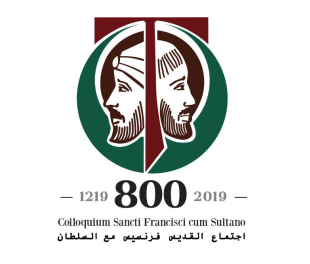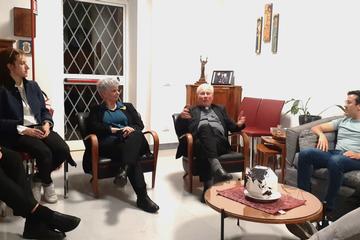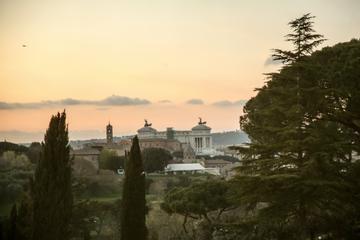
By Elena Dini
ROME — Long before the Catholic Church extended its hand to other religions in friendship and dialogue, St Francis of Assisi traveled to Damietta, Egypt, at the height of the Crusades, and met with Muslim Sultan Malik al-Kamil in a spirit of peace. Today, the mutual respect that developed 800 years ago between the two men of faith, who were supposed to be enemies, remains a firm foundation for Catholic-Muslim dialogue.
During this 800th anniversary year of this encounter, the Franciscan Special Commission for Dialogue with Islam organized a meeting in Istanbul, Sept. 9-15, between Muslim leaders and Franciscan friars and sisters from around the world. They reflected together upon the historical sources of the encounter between St Francis and the sultan, and discussed how to make the most of its heritage today in the different geographical, cultural and social contexts of encounter between Christians and Muslims.
Franciscan Father Jason Welle, ofm, dean of studies and professor at the Pontifical Institute for Arabic and Islamic Studies in Rome, was at the meeting in Istanbul, and he will share his experience there in his talk, “Fraternity Beyond Frontiers: St Francis of Assisi Meets Sultan Malik al-Kamil,” at The Lay Centre November 12 at 5:30 p.m. (information and registration here).
Why is the meeting between Francis and the Sultan still relevant today for the whole Church?
There are two reasons why this encounter is important for the universal Church. The first is that it is Pope Francis who calls us to celebrate this event as an occasion of interreligious friendship, of building relations across religious boundaries and seeing each other as brothers and sisters. It is not simply Franciscans who want to talk about it but other Christian and Muslim leaders as well.
The second reason is that Franciscan scholars consistently link the encounter with the Sultan with Francis’ encounter with the leper. Both are an example of Francis’ conversion and learning to draw near to someone that he had been conditioned to dislike or even to hate. As Christians, this is a move we are called to make: to look at people we find distasteful and see the image of God there, to come to regard them as brothers and sisters. This is speaking to all of us, not only those who are engaged in interreligious dialogue.
You recently were in Istanbul to reflect with Franciscan brothers and sisters on this topic. What was most meaningful for you at this meeting?
The single most meaningful thing for me was that this meeting brought together people from around the globe who have experience of Christian-Muslim dialogue in a number of contexts, and I was so pleasantly surprised by the quality of engagement with people who came to commemorate this event.
Diversity is actually one of the reasons why I am excited to come to The Lay Centre: it is another very diverse group of people, coming from different backgrounds. I will enjoy the chance to address a community like that and to discuss together how to build relationship across boundaries. I am really grateful for the invitation and I look forward to it.
In Catholic-Muslim dialogue, 2019 has seen many initiatives dedicated to the encounter between Francis and the Sultan. What is still left to discuss?
Many of us who gathered in Istanbul joked that we were excited for the anniversary to be over because we spent so much time thinking about this and promoting celebrations of this encounter. But one thing I have appreciated lately is that when you keep talking about the same subject and keep thinking and reading about it, your opinion changes and I have noticed this evolution in the way I have looked at this event over the course of the last several months.
What has been in my mind lately is the concern for words like “dialogue,” “friendship,” “brotherhood/sisterhood.” We often do not use it with a great deal of precision. So, I would like to invite a reflection on these words. What does friendship mean in the Facebook era? What does it mean for me to call you a friend? Can we say that Francis and al-Kamil were “friends” or that they saw each other as “brothers”? What are we claiming that happened in Damietta? Can we say that something related to “dialogue” happened in Damietta? What are we claiming should happen between Muslims and Christians today?
Reflecting more on these words will help us in thinking about what sort of relationship we should try to form with each other and going beyond pious platitudes.


